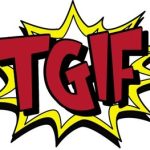 Legislative Overview – February 7, 2025
Legislative Overview – February 7, 2025
Summary of Sessions in the House & Senate today include:
16 Senate Bills Passed and awaiting House Response: SB2049, SB2176, SB2183, SB2190, SB2191, SB2205, SB2211, SB2218, SB2221, SB2226, SB2234, SB2245, SB2253, SB2336, SB2371, & SB2387 Those that failed included: SB2106, SB2170, SB2194, SB2248, & SB2345 No Bills Withdrawn.
10 House Bills Passed and awaiting Senate Response: HB1066, HB1068, HB1144, HB1194,HB 1206, HB1418, HB1441, HB1483, HB1503, HB1518, & HB1561. Those that failed include: HB1102, HB1272, HB1349, HB1392, & HB1501. No Bills Withdrawn.
The Bills we are tracking regarding the business world include:
SB2205: https://ndlegis.gov/assembly/69-2025/regular/documents/25-0784-02000.pdf
This Bill amends North Dakota’s charitable gaming laws by increasing the allocation to the gambling disorder prevention and treatment fund from $10,000 to $75,000. It also revises the distribution of gaming tax revenues to cities and counties based on local gaming activity. Additionally, the bill mandates that surplus funds exceeding administrative costs be transferred to the state’s general fund. The changes impact charitable gaming organizations, local governments, and public health initiatives.
HB1066: https://ndlegis.gov/assembly/69-2025/regular/documents/25-8080-02000.pdf
This bill allocates funding to the North Dakota tax commissioner’s office to cover operational expenses and reimbursements for the homestead tax credit, disabled veterans’ tax credit, and primary residence credit for the 2025-2027 biennium. It allows fund transfers between tax credit programs to ensure sufficient reimbursement and includes a transfer of motor vehicle fuel tax revenue to the general fund for tax administration costs. This bill affects taxpayers, particularly homeowners and veterans, by ensuring continued tax relief support.
HB1272: https://ndlegis.gov/assembly/69-2025/regular/documents/25-0816-02000.pdf ~ FAILED
Proposes changes to North Dakota’s rental laws by requiring mandatory move-in and move-out inspections of leased properties. Landlords and tenants must document the property’s condition, agree on any damages, and provide written statements. The bill also updates security deposit rules, setting limits and specifying how deposits can be used and refunded. It could impact landlords, property management businesses, and tenants by increasing transparency and ensuring fair handling of rental deposits.
HB1349: https://ndlegis.gov/assembly/69-2025/regular/documents/25-0937-01001m.pdf ~ FAILED
House Bill 1349 proposes increasing the cap on noneconomic damages in healthcare malpractice cases from $500,000 to $1 million, with gradual annual increases up to $3 million by 2028. It exempts cases involving unborn fetuses from these caps and prohibits juries from being informed of the damage limitations. The changes take full effect by July 1, 2029. Those who could be impacted would be Healthcare providers who could face higher liability exposure & Patients who may benefit from increased compensation limits.
HB1483: https://ndlegis.gov/assembly/69-2025/regular/documents/25-1080-02000.pdf
Proposes an amendment to North Dakota’s oil extraction tax law, reducing the tax rate for oil produced from new wells outside the Bakken and Three Forks formations. The bill increases the eligible production threshold from 75,000 to 90,000 barrels within the first 18 months and applies a reduced 2% tax rate. This change could benefit oil exploration businesses operating outside major formations by providing tax incentives.
~ What a week it’s been in the legislature! The committee debates have been intense, with plenty of back-and-forth as lawmakers (and those who testified) hashed out the details of various proposals. While the arguing may have been exhausting, it’s all part of the process that shapes the policies impacting us all. As we head into the weekend, take a moment to recharge because things are far from slowing down. All bills seeking funding for this biennium must make their way to appropriations by Monday, February 10th, and we’ll be keeping a close eye on every move. The appropriations process is where fiscal priorities take center stage, and it’s critical to understand how these decisions could affect businesses and communities alike. We’re committed to keeping you informed every step of the way, providing insights into not just what’s happening but what it means for you. So, enjoy your weekend—you’ve earned it—and rest assured that we’ll be monitoring all the developments as they unfold. Stay tuned for updates next week as we dive deeper into the appropriations process and its implications, as well as all of the other bills that are making their way through the process!
Jan Wangler, Executive Director 

